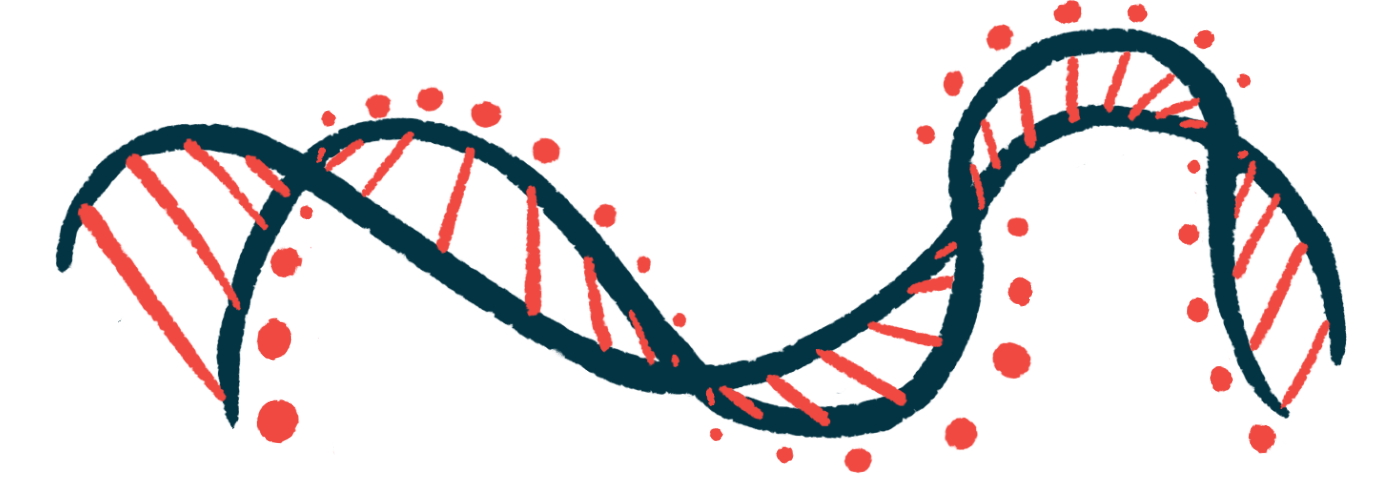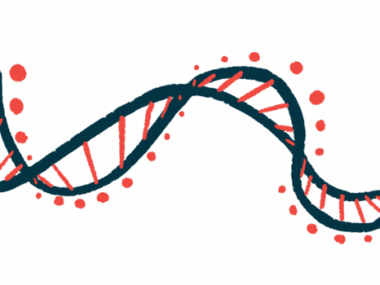Mutations in 22 Genes Linked to Sporadic ALS in Large Group Study
Written by |

Note: Frontiers in Genetics, the publisher of the study discussed in this ALS News Today news story, received a request from the article’s authors to retract it in light of new information indicating that the variants reported in the study might not be meaningful; instead, they may actually result from artifacts due to the way the experiments were designed and performed. Frontiers in Genetics is currently investigating this case and issued an Expression of Concern on May 17 to ensure their readership is aware of the ongoing investigation and potential issues with this particular article. ALS News Today will continue to update this story as more information becomes available.
A recent study has identified 22 genes that are commonly mutated in people with sporadic amyotrophic lateral sclerosis (ALS), and that had not been previously associated with the disease.
The presence of such mutations may help assess the risk of developing ALS, enabling people with the disease to receive earlier diagnoses, sometimes before symptoms are evident, and “have a fighting chance at earlier therapeutic intervention,” the researchers wrote.
A higher number of mutations in these genes seems to predict a greater risk of ALS — patients with at least 18 mutations in the 22 identified genes have a 99% chance of developing the progressive neurodegenerative condition, the study found.
The presence of mutations in several of the genes also highlights that the causes of sporadic ALS may be complex and multifactorial, the research team noted.
“The ability to detect and diagnose ALS before clinical- and pathological-onset is imperative to prolonging patient lifespan, understanding the [disease mechanisms], and designing therapies for early intervention,” the researchers wrote.
“These findings are optimistic for the use of genetic screening in early ALS diagnosis and therapeutic intervention,” they added.
The study, “Novel Genetic Signatures Associated With Sporadic Amyotrophic Lateral Sclerosis,” was published in Frontiers in Genetics.
Approximately 5%–10% of ALS cases are familial, or inherited from a family member who is also affected. The remaining cases are considered sporadic. In these cases, a family history has not been identified, although genetic factors may still play a role in disease development.
Genetic testing for disease-associated risk mutations can be performed prior to symptom onset, and may enable an earlier diagnosis and more effective treatment of the disease. However, such testing is largely restricted to genes known to be associated with familial ALS, and single genes or gene combinations that may contribute to disease in the remaining 90% of patients remains elusive.
To search for new genes associated with the sporadic form of the disease, a team of researchers from Pluripotent Diagnostics in Colorado analyzed genetic sequencing data from 542 sporadic ALS patients, which was provided by the Answer ALS consortium, the largest research partnership focused on finding a cure for ALS.
To serve as controls, sequencing data from 911 healthy volunteers were also provided by Answer ALS and the Alzheimer’s Disease Neuroimaging Initiative.
The researchers focused particularly on finding genetic mutations that appeared in at least 21% of patients. This analysis identified 23 mutations in 22 different genes, none of which were found in any of the healthy participants.
The team next evaluated whether the genes could be used as a diagnostic tool for ALS. They found that a majority of patients with sporadic ALS had at least one, if not more, of the 23 identified mutations. As the number of mutations present in a patient increased, so did the probability of having ALS.
More than half of the patients with sporadic ALS had mutations in at least 17 of the 22 identified genes, which was associated with a 99% chance of developing ALS.
However, mutations among these genes were not correlated with clinical features, including sex, age of disease onset, and disease-associated disability.
“We have identified 22 genes, that when mutated, are highly associated with the development of the sporadic form of ALS. These genetic mutations have not been correlated with ALS before, although their protein products are often involved in pathways that are dysregulated in ALS,” the team wrote.
For example, mutations in the NADH Dehydrogenase Iron-Sulfur Protein 4 (NDUFS4) gene were found in more than 30% of patients. This gene is involved in cellular antioxidant defense mechanisms, similarly to the known ALS gene, SOD1. Experiments in flies showed that a loss of NDUFS4 in nerve cells and muscle leads to a significantly reduced lifespan.
“These supportive findings of our top gene candidate in NDUFS4 are further evidence that NDUFS4 should be explored in genetic screening, and may lend insight into how specific mutations may result in abnormal protein function in ALS,” the researchers wrote.
Another gene, Neuronal Calcium Sensor-1 (NCS-1) was also mutated in a large number of patients. According to the team, altered calcium signaling in the motor nerves of ALS patients has long been considered a potential disease mechanism, and NCS-1 has also been implicated in Parkinson’s disease, another neurodegenerative movement disorder.
The identification of these and other candidate genes offer new directions for exploring ALS mechanisms, the researchers concluded.







